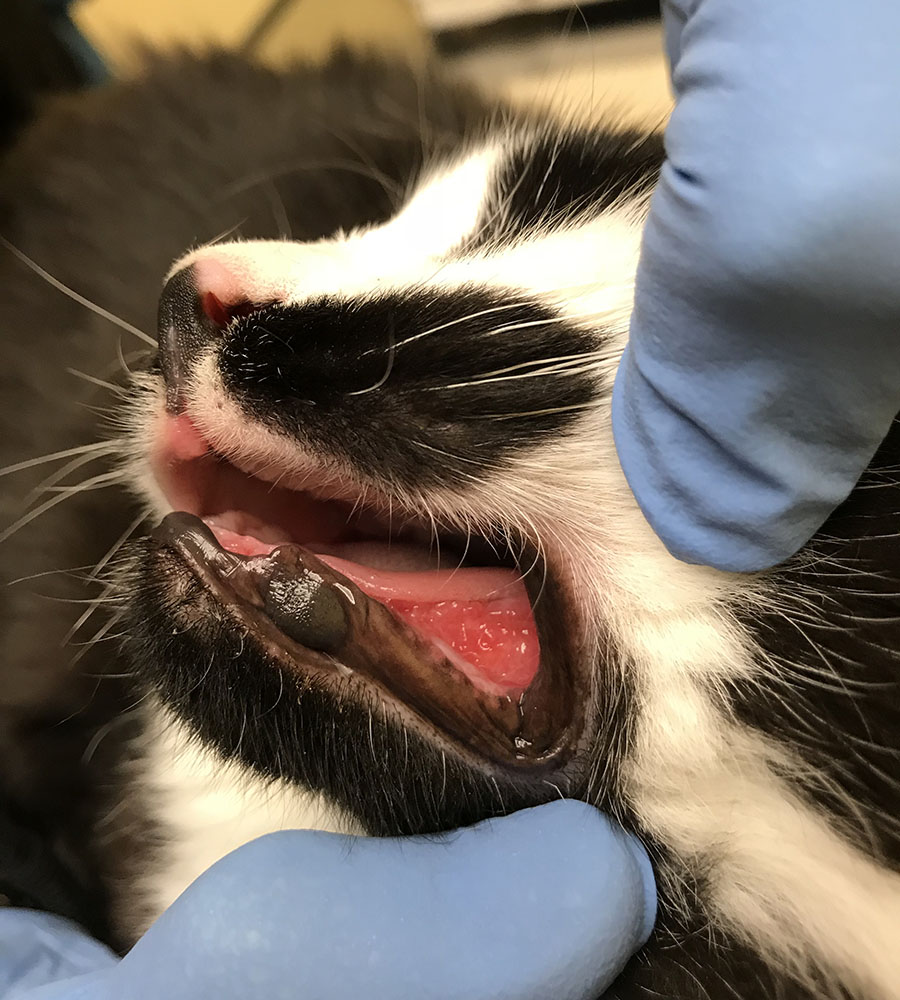Stomatitis in
Cats and Dogs
What it is and how to treat it.

Stomatitis
Stomatitis is a generalized term that refers to inflammation of the mouth. However, this painful condition is caused by specific diseases that affect both cats and dogs, and it can be devastating to you and your pet. The term stomatitis in cats refers to feline chronic gingivostomatitis. In dogs, the disease is commonly called canine plaque-reactive stomatitis, or chronic ulcerative paradental stomatitis (CUPS). In both cases, there is an underlying immune-related disorder that results in inflamed and painful surfaces of the cheeks, tongue, and gums.


Feline Chronic Gingivostomatitis (FCGS)
FCGS is an autoimmune condition in which the cat’s immune response to the teeth and/or oral bacteria is abnormally strong. This results in inflammation and pain that can range from mild to severe. The inflammation centers on the back of the mouth, as well as around the teeth, lips and tongue. While there may be an underlying viral trigger, the exact cause is still unknown. Rarely, FCGS can be managed by maintaining a very clean mouth (anesthetized cleanings at regular intervals and daily brushing at home). Oftentimes, however, more aggressive intervention is needed to help your cat stay comfortable.


